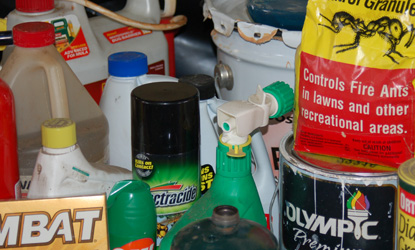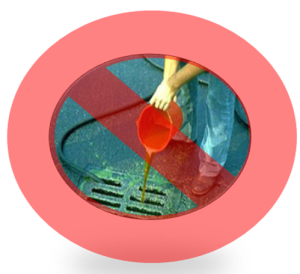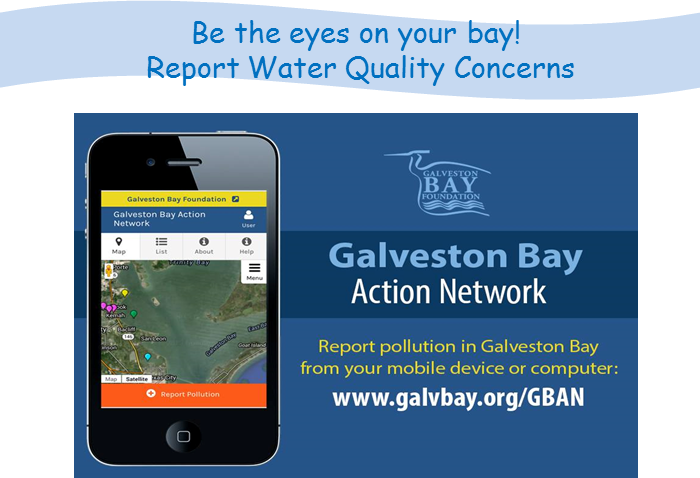One of the easiest ways to decrease nonpoint source pollution is making small changes at home. If you take a good look around your home, you’ll find activities and practices that might be contributing to polluted runoff.
Why should we keep Household Hazardous Waste (HHW) out of our waterways?
Some consumer products contain chemicals that can harm soil, pollute local waterways, and affect the biological organisms used to treat our wastewater.
Toxic Chemicals also have detrimental effects on drinking water quality, water used for recreation, aquatic plant and animal life, and the pipes and pumps associated with industrial and other facilities. Cleaning up water contaminated by toxic chemicals can be very difficult and quite expensive (Texas Watershed Steward Handbook). It’s a big waste of tax dollars if the problem can be avoided in the first place.
Household hazardous waste (HHW) items include but are not limited to:
Corrosive cleaners (such as lye-based oven cleaner)
Drain cleaner
Fluorescent light bulbs (including CFLs)
Fuels (gasoline, propane, diesel)
Paints (oil-based or some anti-mildew latex)
Pesticides/herbicides
Pool chlorine and acid
Wood stains or varnishes
Detergents
Do…
Do buy nontoxic chemicals and cleaners whenever possible and use only the amount that you need. When it comes to chemicals more is NOT better.
Do properly store all household toxic products.
Do dispose of all unwanted household chemicals at a hazardous material collection site or event.
Do use kitty litter to soak up car oil that leaks onto your driveway. Properly package this waste and dispose of it with household trash.
Do use water-based products and low-phosphate or phosphate-free detergents.
Do pass on unwanted, unexpired chemicals or paint in a good condition to friends, families or neighbors.
Do reduce the amount of HHW you keep in your house by buying only what you need to do the job. Buying in bulk is not economical if do not use all of the product.
Don’t…
Don’t pour any unwanted chemicals down the drain-this could seriously disrupt your septic system or contaminate treated sludge.
Don’t keep hazardous products within 150 feet from your well.
Don’t pour any unwanted chemicals on the ground, they can leach into groundwater and contaminate runoff.
Don’t dispose of old oil filters in the garbage- it is ILLEGAL in Texas to do so.
Don’t assume that twice as much is better when it comes to any chemical.
Although avoiding household chemicals is the best solution, this may not always be possible. Proper storage and disposal is the next best way to manage your HHW.
The following tips will ensure the safety of both yourself and the workers that handle your HHW at collection sites and events:
- Keep products in their original container and make sure labels are readable. This ensures you know which products you have and so do the workers who accept and sort your HHW.
- Store and transport your chemicals upright, not on their sides. Make sure if you are taking HHW to a facility or event, that you have secured them in your vehicle and they are not leaking – this can be dangerous for the workers and you if leaking containers of incompatible chemicals mix.
- NEVER mix products together. This can be dangerous, even deadly.
- Keep chemicals in a cool, dry place out of reach of children and pets.
Where do you dispose of your HHW?
- City/County Designated drop off centers
*For Galveston County call Renee Boles at (409) 938-2251 to inquire when the next HHW collection days is scheduled.













